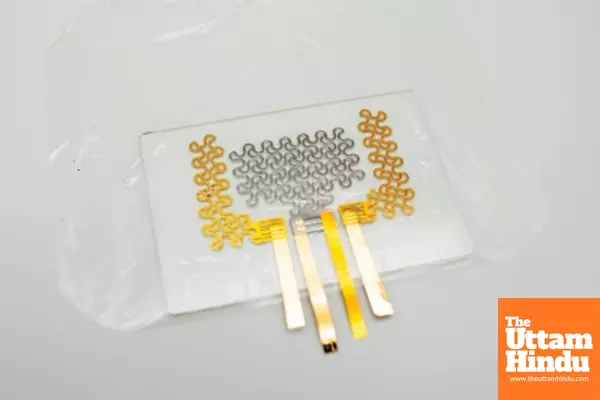Study shows wearable heart sound Sensors could revolutionize cardiology

New Delhi (The Uttam Hindu): Wearable heart sound devices signal a pivotal advancement in cardiac care, providing continuous, non-invasive monitoring with the potential to transform the prevention, diagnosis, and treatment of cardiovascular diseases, a new study reveals. Cardiovascular conditions remain a pressing global health challenge, underscoring the need for innovative tools that enable early detection and timely interventions. Researchers from the City University of Hong Kong highlighted these devices' promise in enhancing patient outcomes through real-time heart health monitoring.
"Our research on wearable heart sound devices represents a major leap forward in the early detection and management of cardiovascular diseases," said Dr. Bee Luan Khoo, Associate Professor at the university. “These devices provide accurate, real-time data, reshaping how we understand and care for heart health,” Khoo added. Traditional diagnostic methods, such as stethoscopes, have proven valuable but are limited in continuous monitoring capabilities. Wearable technology offers a groundbreaking alternative, enabling real-time tracking of heart sounds. However, challenges like sensitivity, user comfort, and data accuracy remain barriers to widespread adoption, the researchers noted. The study explores the evolution from stethoscopes to cutting-edge wearable sensors, spotlighting mechanoacoustic sensors that combine soft, flexible materials with high sensitivity. These innovations prioritize user comfort and accuracy, essential for long-term use.
The researchers emphasized the role of advanced materials and refined designs in addressing current limitations. Techniques to reduce noise interference were also highlighted as critical for precise heart sound analysis, addressing the unique challenges posed by low-frequency cardiac sounds and environmental disruptions. Clinical applications of these sensors envision a future of personalized healthcare, where remote monitoring seamlessly integrates into cardiovascular disease management. This approach could provide actionable insights in real-time, significantly improving patient outcomes and healthcare efficiency. The study underscores the transformative potential of wearable heart sound devices, paving the way for a new era in cardiac care.
